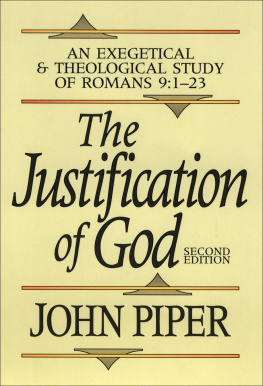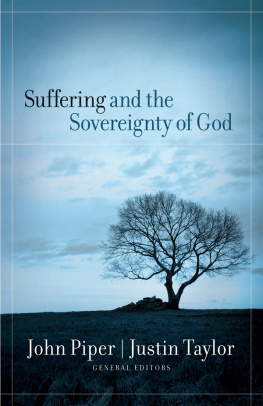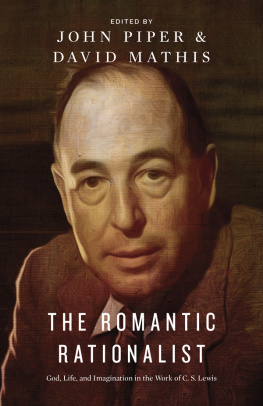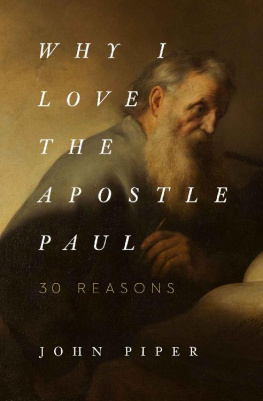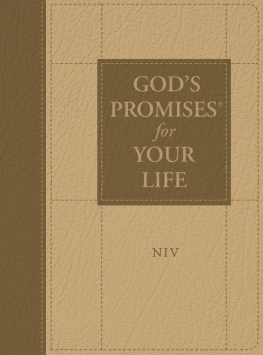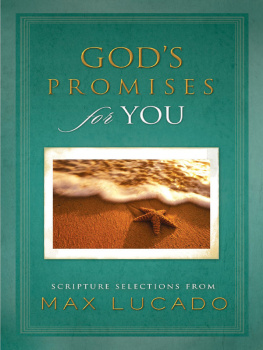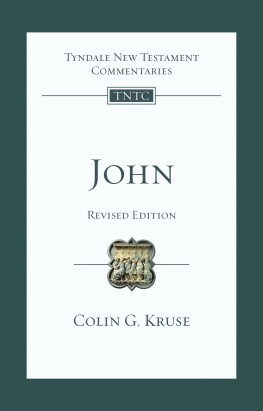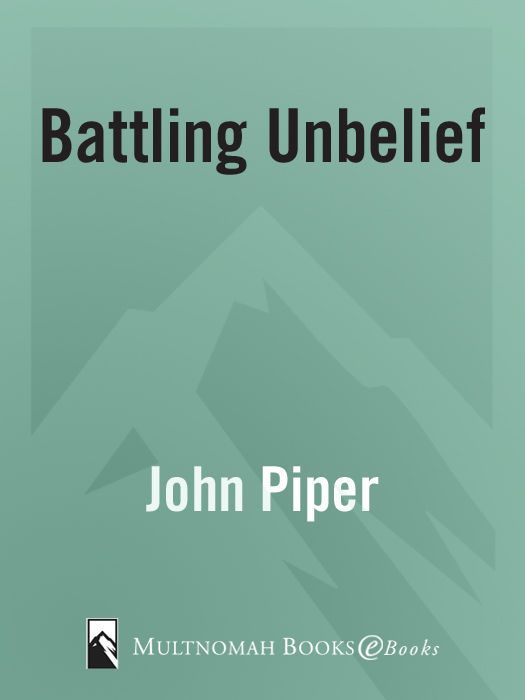BATTLING UNBELIEF
published by Multnomah Books
2007 by John Piper
Italics in Scripture quotations are the authors emphasis.
Unless otherwise indicated, Scripture quotations are from:
The Holy Bible, English Standard Version. 2001 by Crossway Bibles, a division of Good News Publishers.
Used by permission. All rights reserved.
Scripture quotations marked KJV are from the King James Version of the Bible. Scripture references marked RSV are from The Revised Standard Version. Copyright 1946, 1952, 1971, 1973 by the Division of Christian Education of the National Council of the Churches of Christ in the U.S.A.
Scripture quotations marked NASB are from The New American Standard Bible. 1960, 1962, 1963, 1968, 1971, 1972, 1973, 1975, 1977, 1995 by the Lockman Foundation. Used by permission.
Published in the United States by WaterBrook Multnomah, an imprint of the Crown Publishing Group, a division of Random House Inc., New York.
M ULTNOMAH and its mountain colophon are registered trademarks of Random House Inc.
ALL RIGHTS RESERVED .
No part of this publication may be reproduced, stored in a retrieval system, or transmitted in any form or by any meanselectronic, mechanical, photocopy, recording, or otherwisewithout prior written permission.
For information:
Multnomah Books
12265 Oracle Boulevard, Suite 200
Colorado Springs, CO 80921
Library of Congress Cataloging-in-Publication Data
Piper, John, 1946
Battling unbelief / John Piper.
p. cm.
eISBN: 978-0-307-56206-7
1. Belief and doubt. 2. Faith. 3. Sin. I. Title.
BT774.P57 2007
248.86dc22 2006031790
v3.1_r1
To
Ruth Eulalia Piper
19181974
May her memory be honored
in the holiness of her heirs
CONTENTS
INTRODUCTION
I n To End All Wars, Ernest Gordon tells the true story of a group of POWs working on the Burma Railway during World War II. The scene was made even more unforgettable because of the movie by the same title.
The days work had ended; the tools were being counted, as usual. As the party was about to be dismissed, the Japanese guard shouted that a shovel was missing. He insisted that someone had stolen it to sell to the Thais. Striding up and down before the men, he ranted and denounced them for their wickedness, and most unforgivable of all their ingratitude to the Emperor. As he raved, he worked himself up into a paranoid fury. Screaming in broken English, he demanded that the guilty one step forward to take his punishment. No one moved; the guards rage reached new heights of violence.
All die! All die! he shrieked.
To show that he meant what he said, he cocked his rifle, put it to his shoulder and looked down the sights, ready to fire at the first man at the end of them.
At that moment the Argyll [Highlander] stepped forward, stood stiffly to attention, and said calmly, I did it.
The guard unleashed all his whipped-up hate; he kicked the helpless prisoner and beat him with his fists. Still the Argyll stood rigidly to attention, with the blood streaming down his face. His silence goaded the guard to an excessive rage. Seizing his rifle by the barrel, he lifted it high over his head and with a final howl, brought it down on the skull of the Argyll, who sank limply to the ground and did not move. Although it was perfectly clear that he was dead, the guard continued to beat him and stopped only when exhausted.
The men of the work detail picked up their comrades body, shouldered their tools and marched back to camp. When the tools were counted again at the guard-house no shovel was missing.
The guard had miscounted. The young soldier who stepped forward had not stolen a shovel. He had given his life for his friends.
W HAT J UST H APPENED?
M ERE D EVOTION TO D UTY?
There is more than one way to commend this young mans sacrifice. One would be to say, Thats the kind of devotion to duty we need more of in this day of self-centeredness and cowardice. Another would be to saythis is the way I would say itThat is the kind of love that faith in future grace releases. We need far more of that kind of love in this day of self-centeredness and cowardice.
These two ways of commending the sacrifice are not necessarily in conflict. But they might be. The first way speaks of a kind of devotion to duty. The second speaks of the transforming power of faith in Gods promises. In contrasting these two, we need to ask, What kind of duty was it? That is the crucial question. The external action does not tell the decisive story. What was going on in the hearttoward God and man? The Bible cautions us that people can sacrifice their lives, but not love people or God. If I give away all I have, and if I deliver up my body to be burned, but have not love, I gain nothing (1 Corinthians 13:3). When the apostle Paul says this, he means there is a kind of devotion to duty that God does not honor. It gains nothing.
That may seem strange, since Jesus himself said, Greater love has no one than this, that someone lays down his life for his friends (John 15:13). Yes, that is what great love does. It lays down its life. But whether that act is truly loving depends on what is going on in the heart, not just on the external action.
T HE F RUIT OF F AITH IN F UTURE G RACE
Another way to describe the young soldiers sacrifice is to say that faith in future grace welled up in his heart and gave him the love and courage to give his life for his friends. He may have thought in a flash: Jesus, you died for me. My sins are forgiven. I have eternal life. I love you. You are my greatest treasure. I am eager to be with you. My friends are not all ready to die. I am. To live is Christ and to die is gain. Here I come. Perhaps he took fifteen seconds to remind himself of what Christ had done for him, and what that meant for his future after death. Then, sustained by his faith in Gods promises, he stepped out and died. This is the fruit of faith in future grace.
The difference between the sacrifice that comes from sheer devotion to duty and the sacrifice that comes from faith in Gods future grace is that the first highlights my strong resolve, and the second highlights the glory of Gods grace. The aim of this book is to magnify the value of Christ by feeding faith in future grace and helping Christians battle the opposite, namely, unbelief in Gods promises that leads to Christ-dishonoring sin.
W HERE THE B OOK C AME F ROM
The eight chapters that follow are taken from a much larger book titled The Purifying Power of Living by Faith in Future Grace. These are the application chaptersthe ones that actually illustrate how faith in future grace severs the root of sin and sets free the stream of love. Our focus is on the very practical challenge of how to free ourselves from anxiety, pride, misplaced shame, impatience, covetousness, bitterness, despondency, and lust. My conviction is that unbelief in the promises of God (that is, future grace) is the root that sustains the life of these sins. Hence the title:


